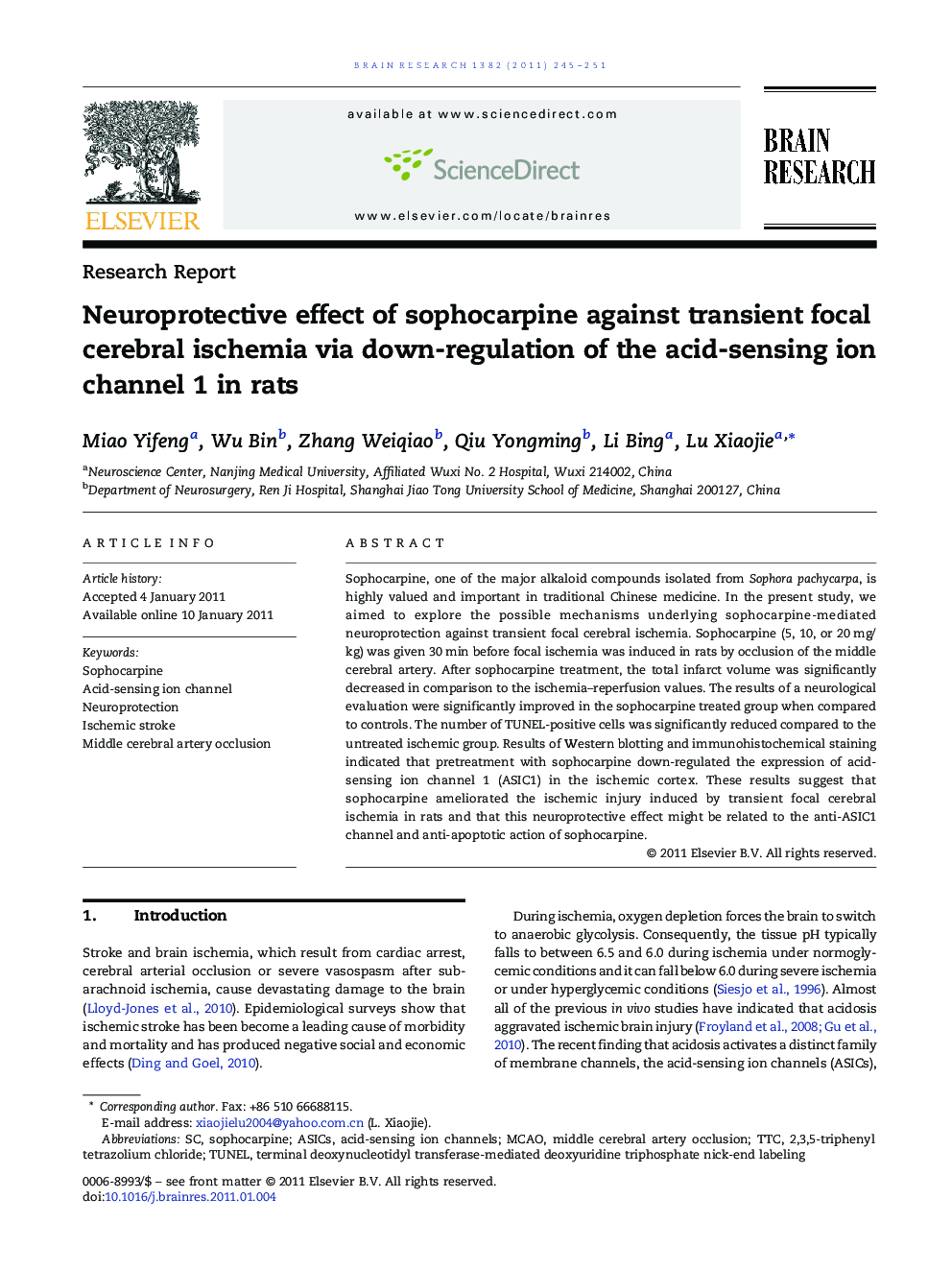| Article ID | Journal | Published Year | Pages | File Type |
|---|---|---|---|---|
| 6265099 | Brain Research | 2011 | 7 Pages |
Sophocarpine, one of the major alkaloid compounds isolated from Sophora pachycarpa, is highly valued and important in traditional Chinese medicine. In the present study, we aimed to explore the possible mechanisms underlying sophocarpine-mediated neuroprotection against transient focal cerebral ischemia. Sophocarpine (5, 10, or 20Â mg/kg) was given 30Â min before focal ischemia was induced in rats by occlusion of the middle cerebral artery. After sophocarpine treatment, the total infarct volume was significantly decreased in comparison to the ischemia-reperfusion values. The results of a neurological evaluation were significantly improved in the sophocarpine treated group when compared to controls. The number of TUNEL-positive cells was significantly reduced compared to the untreated ischemic group. Results of Western blotting and immunohistochemical staining indicated that pretreatment with sophocarpine down-regulated the expression of acid-sensing ion channel 1 (ASIC1) in the ischemic cortex. These results suggest that sophocarpine ameliorated the ischemic injury induced by transient focal cerebral ischemia in rats and that this neuroprotective effect might be related to the anti-ASIC1 channel and anti-apoptotic action of sophocarpine.
Research highlightsâºWe investigated the neuroprotective effects of Sophocarpine in rats. âºTreatment with 20 mg/kg sophocarpine reduced focal cerebral infarction and neural apoptosis. âºSophocarpine down-regulated the expression of ASIC 1 in the cortex of ischemic rats. âºSophocarpine exhibited no effect on the expression of ASIC 2.
